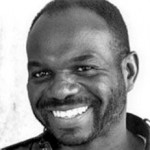One morning next month, HIV counselors will cross the Rikers Island Bridge to the country’s largest jail facility for the very last time—barring a last-minute reprieve on the pink slips issued last week to all 12 on staff. New York City officials say they’re just restructuring at Rikers Island and that other employees will fill their shoes. But the counselors fear the worst, especially with one out of three prisoners at the jail believed to be HIV positive.
“I seriously don’t know what will happen if we’re not here, but everyone in the community is going to suffer from it,” says Linda Glover, who’s been counseling at the complex for ten years. She spoke to POZ.com from her Rikers office, where she says her door is always open—and not just for counseling before and after HIV tests. Anyone among Rikers Island’s 13,000 prisoners who is struggling with a prevention concern or treatment question is invited to settle into one of her metal stacking chairs for a heart-to-heart.
No worries, says New York City’s Department of Health and Mental Hygiene (DOHMH), none of that will change. The plan after the counselors leave on December 7 is to put physicians in charge of post-test counseling, condom distribution and HIV education. Pre-test counseling will be conducted by the Patient Care Associates doing the tests.
“What we’re trying to do is make testing much more of a part of routine medical care,” explains Louise Cohen, deputy commissioner of health-care access and improvement—using the “routine testing” vernacular of a new federal policy to loosen up testing procedures that DOHMH hopes will one day be echoed in New York State law.
“We believe that part of bringing [HIV testing] into routine medical care is ensuring that all of the people who come in contact with any patient are able to talk about HIV with them,” says Cohen. (Prison Health Services, the for-profit company that runs the jail’s health program along with DOHMH, referred queries back to the Department.)
Mindy Venetek, another of the fired counselors, is not so sure about doctors doing her job. She says Rikers’ 17-year-old HIV counseling program owes its success to the way seasoned professionals have managed to win the trust of prisoners. “You’ve got to meet people where they are—not where you think they should be,” says Venetek.
Megan McLemore, from the HIV/AIDS division of Human Rights Watch, also objects strongly to the decision to hand over counseling to medical personnel. “HIV is a high-maintenance, stigmatized disease,” she says. “This could be a serious issue from a mental health perspective.”
One thing’s for sure: Jailhouse testing has taken off in New York. Since the 2004 introduction of rapid testing at city correctional facilities, the number of prisoners tested annually during intakes has jumped from 5,000 to 29,000.
The effects of conducting routine HIV tests on the Rikers scale have yet to be measured. But getting it right is important with this population, which is at especially high risk for HIV—and transient. Most people spending the night at Rikers, whether on the island itself or one of two converted ferries bobbing offshore, are just passing through on the way to prisons or courtrooms. The question of what they pick up in the form of one-to-one support and information about HIV is not a small one.
Jailhouse Talk: HIV Counseling Gets ’Routine’ at Rikers






Comments
Comments